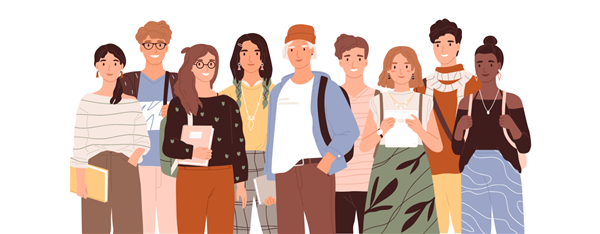
One of the most important studies of recent years has gone largely under the radar. But with schools back in session for the year, it deserves our attention.
La Trobe University’s seventh National Survey of Australian Secondary Students and Sexual Health survey asked nearly 7,000 year 9–12 students across the country about their experiences of sex and relationships. What’s clear from reading this survey is that while we’ve made great inroads into sexual education for young people, we’re still missing the mark.
There’s a mismatch between what young people believe and their actions, and much of this is because they aren’t being provided information in a meaningful way. The result? Young people aren’t armed with the tools they need to make safe, informed decisions about sex, relationships, and their bodies.
Take, for instance, the fact that while 94 per cent of young people thought condoms should be used with a new partner, only 57% thought this practice was common among peers. Among young people, condoms are often thought of as primarily a form of contraception, not to prevent sexually transmitted infections (STIs).
Young people appear to be more conscious of the effects of teen pregnancy resulting from unprotected sex. However, we’ve now left them vulnerable to some of the most common STIs for their age group, which can have serious health implications if left untreated.
The overwhelming majority of young people are aware of HIV, said Simone Jones, one of our health educators. “What they don’t know is that their risk of getting chlamydia is much, much higher with people in their age group and without protection can leave lasting impacts on their reproductive health.”
Young people understand that condoms are important and want to do what’s right, but they don’t know what they’re actually trying to protect from. It’s the responsibility of adults to make sure that young people are equipped with this information and where to get it from.
Another sobering discovery from the survey is that more than a third of young people who have had sex experienced unwanted sex, including sex experienced under verbal pressure, agreeing to sex because of a fear of negative outcomes about not doing it, being physically forced, or being too drunk or high at the time to consent.
According to the survey, the average age young people first experienced unwanted sex? Fourteen years old. Most of these are the grey areas of sex and often perpetrated by someone they knew—this is what we need to be teaching young people more about, not the bogeyman hiding in a dark alley.
There is good news. Australia’s new relationship and sexuality (RSE) curriculum addresses more deeply issues around consent, unwanted sex, and coercive control. The curriculum, combined with surveys like these, provide an opportunity for schools, teachers, and families to recognise the gaps in current education and look at how we improve what we’re teaching young people.
1. The first is understanding that the most effective RSE begins long before teens are sexually active. The foundation should be laid early on with families and reinforced in prep, where children learn about protective behaviours at a young age. By starting with a foundation of personal safety and consent in early education, educators can continue building on their knowledge to assist in filling the gaps in young people’s sexual and reproductive health education.
Research is clear that comprehensive RSE programs throughout a child’s youth lowers the risk of gender-based violence and sexual abuse, and helps young people have healthy, happy, pleasurable relationships. RSE builds on each year level. If children aren’t learning the basics early, they’re at a disadvantage when they become young adults and start having sex.
Consider how we teach kids to read. They first learn letters and sounds, progressing to chapter books and more advanced materials as their skills and comprehension improves. It’s the same with teaching kids about healthy relationships.
2. We need to better support teachers in delivering RSE. There are plenty of schools with teachers who provide this education and do a brilliant job. But many teachers feel ill-equipped to run these classes for their students, or even want to, and that’s fair—a maths teacher didn’t train to talk about STI rates.
This is where external educators like the ones at True can be beneficial. According to the survey, only 27% of young people trusted their teacher to provide accurate information on sexual health. In addition, LGBTIQ+, Aboriginal & Torres Strait Island young people, and those living with disability find current school-based education lacks inclusivity for their needs.
Having an adult who’s trained in these topics and isn’t someone a student has to see every day can help facilitate open, honest conversations which support learning in all aspects of diversity.
3. Parents need to get comfortable with being uncomfortable and have these conversations with their kids. While best practice would have multiple, sequential RSE lessons over the years, the reality is that most schools can only do it once a year. Parents, on the other hand, can talk to their children the other 364 days. We must stop treating sex as a taboo topic and instead start encouraging meaningful two-way discussions about healthy relationships at home.
I’m a parent of a 17-year-old boy, so I get it—these conversations are often awkward. But we can’t keep covering our eyes and making pretend young people aren’t having sex, only to expect them to know how to do it safely or have healthy relationships once they hit the magical age of 18. If we don’t give them the right information at the right time, young people will continue filling in the blanks themselves through misinformation, porn, and more.
The new RSE curriculum addresses much of this. Now it’s up to schools, teachers, and families to make sure that we’re reinforcing it. We have an incredible opportunity to change young people’s behaviour around sex. Let’s not waste it.
Karen Struthers, CEO.